WebInfo
Faculty, Staff & Alumni Spiritual Formation
Partnership for Evangelization
Chaplaincy
Strengthening & Development
Inter-Religious & Cultural Dialogue
Student Spiritual Formation
Campus Ministries Office
ORGANIZATIONAL STRUCTURE
FABELA, Danikka Rose M | 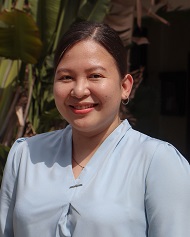 |
DAGUS, Kevin Delos R | 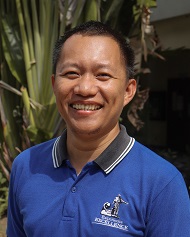 |
GARDUQUE, Janille Mariz A | 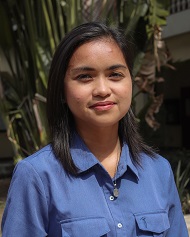 |
OCLARIT, Annie Fe B | 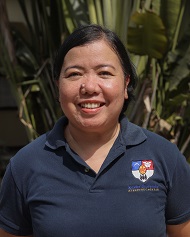 |
PANGAN, Mona Lisa D | 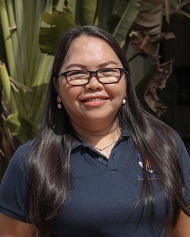 |
PIMENTEL, John Dwight B | 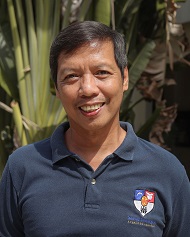 |
BOLECHE, Maria Cristina O, Sr, RA | 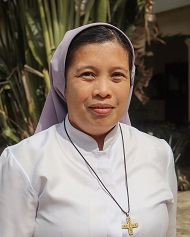 |
TALAMPAS, Mary Francis C, Sr, RA | 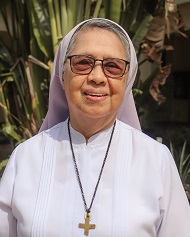 |
CANGOT, Ranette, Sr, ODN | 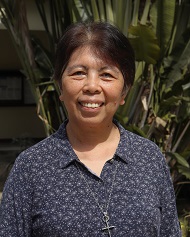 |
STA CRUZ, June Lyn B | 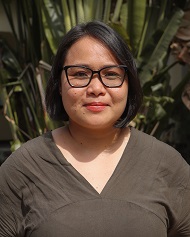 |
VILLANUEVA, Angelo Zayne C | 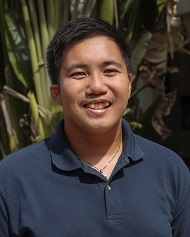 |
Under OSA is the Student Activities and Leadership Development (OSA-SACDEV). It is dedicated to providing students with quality programs, services and leadership opportunities that enrich the students’ classroom experience and non-academic endeavors. More so, it oversees the recognition and management of over 70 student organizations composed of the Central Student Government (CSG), College Councils, Co and Extra-Curricular Organizations, Media/Publications Organizations (Crusader Publication and Crusader Yearbook) and Professional Organizations among others. It also works for the individual development of students through training programs that in accord with developing their leadership and management skills.
Central Student Government (CSG)
is the highest governing body of all XU students in the tertiary level. It addresses, promotes, protects and preserves the needs, dignity, ideals, and aspirations of the students pursuant to the mission of the University in forming men and women for others. In fulfilling this function, CSG works with the Assembly of Extra-Curricular Organizations (AECO) and the eight undergraduate college councils.
CSG provides student leaders a first-hand experience on governance. The Directorate, which is the legislative branch of CSG and composed of the elected presidents of the college councils and convener of AECO, formulates student-related policies and implements programs and projects that address campus issues, facilitate faculty-student interaction and promote student awareness.
College Councils
are composed of students who are enrolled in a particular school or college. College councils promote the rights, welfare and responsibilities of their members and implement programs and projects that primarily benefit them and the larger community. These include collaborative projects with other organizations, college month or week-long celebrations, intramurals and outreach projects.
The college councils are affiliated with their respective college dean’s offices where they also serve as arm and coordinating body for the implementation of programs and policies promulgated by the school/college. They are also complemented with a number of co-curricular organizations harmonizing the students’ academic formation.
Co-Curricular Organizations (Co-Currs)
are organizations composed of students enrolled in a specific field or discipline. They focus on a particular academic area and initiate programs and projects that are designed for (but may not be limited to) the promotion of their field of study and academic enhancement of their members (e.g. special lectures, seminars, or fora). In addition, co-currs liaise between students and the academic departments in matters concerning their studies (e.g. curriculum, policies specific to their course, etc).
Extra-Curricular Organizations (Extra-Currs)
are organizations primarily designed to cater to students’ special interests. They are open to all students regardless of what college or academic program they belong. They specialize in a specific field of interest such as leadership, social awareness, fellowship, community service, sports, arts and culture, and many others. While majority of these organizations are under OSA, companies such as the Glee Club, Cultural Dance Troupe, Dulaang Atenista, The Xavier Stage, and Xavier Philharmonia are housed under the Xavier Center for Culture and the Arts (XCCA).
Assembly of Extra-Curricular Organizations (AECO)
which is considered a council, governs a wide variety of extra-curricular organizations for students to choose from, may it be for the arts such as theater, music, or visual arts; environment; socio-cultural, service-learning; or something more physical such as athletics clubs and teams, physical contact sports, or mountaineering. A convener of AECO is chosen by the presidents of the different extra-curricular organizations and sits in CSG’s Directorate.
Media/ Publications
are organizations whose projects are realized through audio, video, print, or on-line publication. These groups primarily advance student needs and express student views. They accept students enrolled in any course.
Religious Organizations
organize programs and projects which serve as support for students in a particular religious denomination. They implement programs and projects that are in accord with the promotion of faith and justice. They accept members regardless of course. Religious organizations are directly under the Campus Ministries Office.
Program-Based Groups
are directly affiliated with a particular unit in the University. These are specialized groups mandated to promote a special advocacy. Their membership requirements include a commitment to work for and an interest in a particular cause. Such cause may be social in nature.
Professional Organizations
are composed of students enrolled in the graduate courses. They seek to further a particular profession or field of expertise, the interest of the individuals engaged in that profession and the community’s interest. They offer activities such as lectures, fora, academic tours and outreach projects among others.
With the mission of forming leaders with competence, conscience and commitment, OSA collaborates with students in exploring avenues for personal growth, social responsibility and skills development. It has a Student Leadership Development Program (SLDP) that applies the University’s 3C’s model (competence, conscience and commitment). Under this umbrella program are the following:
Change Leadership (CL)
is meant for current organization presidents and other interested students who are holding key positions in organizations. It is concerned with the driving forces, visions and processes that fuel large-scale transformation. It introduces the concept of transformational leadership as a potent tool for effecting faster, smarter and more efficient changes in student organizations and for creating positive and valuable change in the larger community. It aims to form masses of leaders who aspire to make something happen in the community they serve. It empowers more and more students who carry the ultimate goal of creating a better world and just society for the self and for others.
Ateneo School for Upcoming Leaders (ASUL)
is a student leadership formation program that seeks to gather, nurture and empower a community of “potential” leaders who show influence among their peers. This program shares an integral part in forming the students’ conscience by inspiring them to take active leadership role in the University.
ASUL explores leadership issues through transformative learning that exposes first year and second year students to a broad spectrum of people and organizations within and outside the University. Participants build their knowledge and network by meeting students from the different schools and colleges and listening to the experiences and insights shared by formators and faculty members in the University. They are also exposed to different organizations and foundations outside the University. Participants learn through indoor and outdoor discussions and activities, exposures, immersions, participant observations, individual and small group reflection sessions and peer presentations and outreach programs.
Atenista Ako Movement
is dedicated to promoting Ignatian values and inciting university spirit. Its focus is on the resolution of evident but undermined campus problems by encouraging positive attitude among students. The program encourages students to not just live by the essence of being Ateneans but commit to the values lived by St Ignatius in their day-to-day lives.
There are three things that serve as basis for operation of the movement: 1.) Sense of Identity, 2.) Sense of Ownership, and 3.) Promotion of University Spirit. These things, when successfully acted upon are aimed at attaining change in campus culture.
STREAMS-Pathways to Higher Education
is an opportunity given to students who wish to fulfil a sense of social responsibility. In STREAMS, the volunteers are exposed to social issues, particularly on education and are given the chance to provide opportunities for graduating public high school students obtain and complete higher education.
STREAMS explores educational concerns through transformative learning that exposes high school participants to a broad spectrum of opportunities that nurture their full potential to attain quality higher education. Participants gain more knowledge through the facilities and resources that the University provides; acquire new skills through personality development and leadership formation sessions; and increase their network by meeting students from different schools and student leaders and key administrators of Xavier University. On the other hand, student volunteers running the program gain more opportunities for community development work and skills training through the formation program provided for them and the actual delivery of their respective roles and responsibilities.
OSA offers the following services to help students in their financial needs while studying in the University:
- Student Assistantship Program
To provide financial assistance to qualified and deserving college students through campus employment, OSA conducts recruitment, screening, and deployment of student assistants to the different offices/units in the main and satellite campuses. Student assistants are not considered casual employees of the University. They receive monetary allowance based on the number of hours that they render. Such monetary allowance is applied on their tuition and matriculation fees. (A complete policy on XU Student Assistantship Program is available at OSA.)
- Student Assistance Fund (SAF) Loan
Short-term loans for tuition assistance during major exams (except final exam) and allowance for board and lodging are administered by OSA in close coordination with the Finance Office. Loan applications must be endorsed by the student’s parents or guardians and approved by the Director of Student Affairs.
- XU Band Scholarship
OSA supervises the recruitment, screening and training of band members who qualify for XU Band Scholarship in coordination with the Office of Scholarships and Financial Aid (OSFA). The XU Band Instructor takes care of the auditions and applications for band scholarships while the Director of Student Affairs handles the approval and monitoring of academic requirements.

The provision of essential student services supports the United Nations’ Sustainable Development Goal 1: No Poverty.
Orientation Seminar
A prerequisite program for all new students of Xavier University. The program enables new students have smooth transition from high school to college and introduces them the mission, vision, and inner workings of the University.
Magis Awards
Is an annual search for outstanding projects, student leaders, and student organizations who have demonstrated Ignatian ideals of service and excellence. The recipients of the awards are honored for fostering collaboration and unity with organizations and institutions within and outside the University. As a way of contributing to national development, the search challenges student leaders and student organizations to engage in community projects and commit to the civic purposes of their chosen fields.
Review and Recognition Committee
Is a policy-making body composed of representatives from the different colleges and program coordinators of SACDEV-OSA. It helps student leaders reach high standards in terms of implementing programs and projects. Its main functions are to review and gauge the performance of student organizations, confer awards and recognition on outstanding groups and individuals, and establish the norms and conditions by which student organizations may be allowed to function.
Moderators’ Affairs
Is a system that formalizes the appointment of university personnel who oversee the activities of an organization; provides information for both the organization and the moderator about the roles and responsibilities; and evaluates the relationship of the organization to the moderator and vice versa.


































